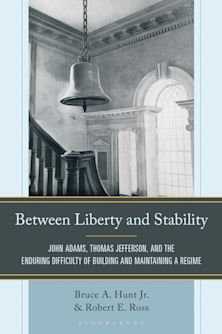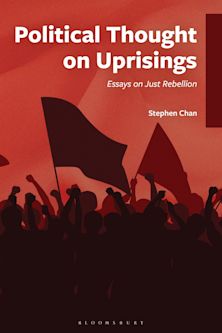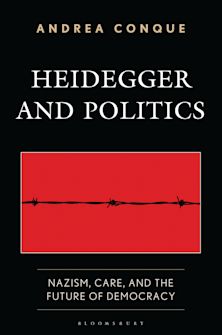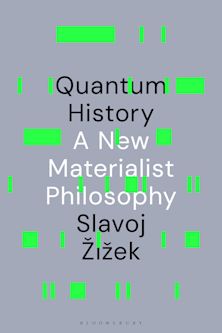- Home
- ACADEMIC
- Politics & International Relations
- Political Theory and Philosophy
- Sinclair Lewis and American Democracy
Sinclair Lewis and American Democracy
For information on how we process your data, read our Privacy Policy
Thank you. We will email you when this book is available to order
You must sign in to add this item to your wishlist. Please sign in or create an account
Description
Sinclair Lewis was one of the most astute observers of American social and political life. Sinclair Lewis and American Democracy is a highly readable analysis of his novels. The book examines each of Lewis’s novels on key themes in the history of political thought and democracy including freedom and purpose, success and materialism, and nationalism and race. Lewis is revealed to be an unapologetic individualist and a fierce humanitarian.
Table of Contents
Chapter 2
Chapter 3
Chapter 4
Chapter 5
Chapter 6
Chapter 7
Chapter 8
Chapter 9
Product details
| Published | Oct 28 2016 |
|---|---|
| Format | Ebook (Epub & Mobi) |
| Edition | 1st |
| Extent | 200 |
| ISBN | 9781498519151 |
| Imprint | Lexington Books |
| Series | Politics, Literature, & Film |
| Publisher | Bloomsbury Publishing |
About the contributors
Reviews
-
Michels (political science, Sacred Heart Univ.) makes the case that Lewis and his work deserve greater attention than the author's "minor" status has heretofore afforded him. One of the primary strengths of Michels's argument is his attention to the serious political ideology that marked Lewis's novels. Lewis interrogated such institutions as the family, the economic system, and religion in addition to beliefs having to do with feminism and nationalism/racism—all matters that demand much more than superficial platitudes. Lewis's in-depth commentary on a broad range of subjects gives his work an authority that many readers have ignored. For instance, Lewis's portrayal, in The God Seekers, of the motives and psychological origins of religious zealotry comes uncomfortably close to present-day realities surrounding religious beliefs. The eponymous protagonist of Elmer Gantry reflects the vagaries of the contemporary "prosperity gospel" and the moral lapses of high-profile televangelists. Michels revisits the relevance of Lewis's thinking with appreciation and in detail, thus performing a necessary service: giving a novelist of ideas his proper due. Sinclair Lewis and American Democracy can be read profitably from both a literary and a societal standpoint, so it has a place in the literature of political science as well as literary studies. Summing Up: Highly recommended. Lower-division undergraduates through faculty; general readers.
Choice Reviews
-
In writing Sinclair Lewis and American Democracy, Michels has performed a valuable service for two groups of readers. First, students and admirers of Lewis will find the book extremely helpful as a guide to how Lewis’s lesser known works relate to those more commonly read. It is an impressive feat indeed to integrate all twenty-three of Lewis’s novels into the book. The chapter themes are also well chosen to give these readers a synoptic vision of Lewis’s political thought. Second, the book will be of great use for those looking to integrate Lewis into their study of literature and political thought. The text is filled with interesting and suggestive connections between Lewis and the major thinkers in the history of political thought.
VoegelinView
-
Steven Michels begins his thoughtful book on Sinclair Lewis with the observation that “there is considerable disagreement about what to make of Lewis and even whether he is worth reading at all”.... Michels reads Lewis carefully and sympathetically, resurrecting Lewis’s best ideas and explicitly connecting them to centuries-old debates about democracy.... [Michels's] perspective is...an important one. Lewis himself would appreciate Michels’s careful analysis, and readers of Sinclair Lewis and American Democracy will likely be convinced that Lewis is, in fact, “worth reading” again.
The Review of Politics
-
A refreshing and overdue study debunking (among other things) the canard that Sinclair Lewis’s satires of American life had no values undergirding them. A solid analysis of the democratic and political values that guided his critical realism.
Richard Lingeman, author of “Rebel From Main Street”
-
Sinclair Lewis and American Democracy is a fascinating new approach to Sinclair Lewis’s novels. Michels intelligently discusses all of Lewis’s novels, from the well-known like Main Street and Arrowsmith to the lesser known like The God-Seeker and Work of Art, through the lens of political philosophy, showing how seriously Lewis thought about democracy in his fiction. Lewis would like his characters to be better and more engaged citizens of the republic, but is aware of how hard it is to do well and make life meaningful. This book is a valuable addition to Sinclair Lewis studies and sure to become one of the standard texts for Lewis scholars.
Sally Parry, Sinclair Lewis Society



































